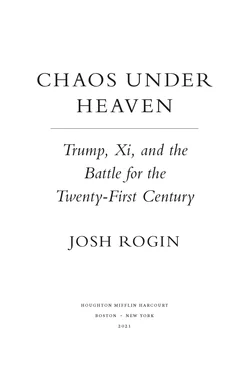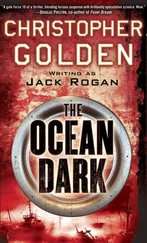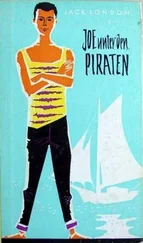A White House official put it to me more simply: “China is out of control.”
The airlines didn’t know what to do. One senior airline executive told me the airlines would probably still cave to Beijing’s demands: “This is lose-lose for us. We aren’t a political organization, we answer to our shareholders. We don’t want to get caught in the middle of your US-China cold war.” I asked the executive, what about the bad press the airline would get if it was seen to be kowtowing to China? “This is an airline, all we get is bad press. Nothing new there.”
After the initial statement, the National Security Council handed off the issue to the State Department, whose officials at that juncture weren’t as enthusiastic about standing up to the CCP’s Orwellian behavior. They convened the three major US airlines and the related industry associations and tried to come up with a strategy to push back. They decided to meet Beijing halfway. If you look at the United Airlines website today, you will see a listing for Taipei that identifies it neither as part of Taiwan nor as part of China. The CCP initially protested the half measure but ended up accepting half a loaf. They had made their point. They had forced a group of huge international corporations to literally erase Taiwan from the map.
A senior State Department official told me they had engaged the Chinese government on the issue but the Chinese side totally refused to participate in the conversation.
“We tried to demarche them and they basically said no,” the official said. “They basically put their fingers in their ears.”
Loyalty or Else
The airlines weren’t alone. Other major corporations were being leaned on by Beijing to toe their political line or face economic punishment. Marriott Hotels and Mercedes-Benz both folded to Chinese government pressure and removed online content related to Tibet. Marriott even fired an American worker for “liking” a tweet by a pro-Tibet group. That employee, Roy Jones, didn’t even remember “liking” the tweet while working the overnight shift at the Omaha, Nebraska, branch of the Marriott technical support operation. After the Chinese authorities shut down Marriott’s website in China and started a “criminal investigation,” the company fired Jones from his fourteen-dollar-an-hour job, and then the president of their Asia division apologized profusely in the Chinese press. (Their PR team refused to even give me a comment.)
In the summer of 2019, as the Hong Kong situation heated up, Beijing went after (among others) Versace, Coach, Asics, and Givenchy for listing Hong Kong separately from China on their websites or on their products, for which they all profusely apologized. China threatened to boycott Apple for not listing Hong Kong, Taiwan, and Macau as part of China in their mobile operating system.
No perceived slight was overlooked. No amount of groveling was ever enough. And Beijing’s bullying increased. The US government did not have a plan to convince US companies to side with America and not China—or to protect them if they wanted to defy Beijing. The vulnerability of the companies to financial pressure created an asymmetric advantage for Beijing. Somehow, the US side was going to have to figure out how to raise the costs for this kind of behavior, or the CCP would grow emboldened to escalate its demands on how US companies and their employees behaved.
As the CCP forced company after company to capitulate, its appetite grew with the eating. But in October 2019, that all changed when the Chinese government bit off more than it could chew by going nuclear on the NBA over a tweet.
“Stand with Hong Kong”
Just like Marriott’s Roy Jones, Houston Rockets general manager Daryl Morey had no idea the crisis he would create by tweeting something that offended the delicate and paranoid sensibilities of the CCP. He couldn’t have predicted that his tweet while in Tokyo on October 4 of an image that said, “Fight for Freedom, Stand with Hong Kong,” would cause the biggest and costliest scandal in the history of modern sports.
But Morey did know what he was tweeting. He is not your average sports executive, having been a trained researcher and technology expert who worked for years in Washington’s national security community before joining the NBA. He worked as a technology project lead at the MITRE Corporation, a federally funded research center, and contributed to projects at the National Security Agency, the CIA, and the Pentagon. The statistics-based technology strategy that he often published on was part and parcel of his work for Stats, Inc., the company that used the model featured in the Michael Lewis book Moneyball.
Even though he deleted the tweet, within hours, the Chinese Basketball Association, sportswear brand Li-Ning, SPD Bank, state broadcaster CCTV’s sports, and tech giant Tencent all announced they would suspend business with the Rockets. Only with Chinese government direction could all these various organizations act in concert so quickly. Morey was hounded with death threats and lots of other bile on Twitter as China’s “50-cent Army,” the thousands of online trolls the government directs, blasted him for supporting “violent separatists,” attacking China’s dignity, violating its sovereignty, and offending all 1.4 billion Chinese people.
NBA commissioner Adam Silver, at first, followed the same playbook every other corporate executive had pursued until that point—apologize profusely, discipline the employee, take your lumps, and promise it will never happen again. The league pressured Morey to issue an outright apology. He refused, issuing a carefully worded statement: “I did not intend my tweet to cause any offense to Rockets fans and friends of mine in China. I was merely voicing one thought, based on one interpretation, of one complicated event.”
The NBA actually issued two different statements in two languages. In English, the NBA statement said, “We recognize that the views expressed by Houston Rockets General Manager Daryl Morey have deeply offended many of our friends and fans in China, which is regrettable.” In the Chinese-language version, the NBA statement said, “We are extremely disappointed in the inappropriate remarks made by Houston Rockets General Manager Daryl Morey.”
Rockets owner Tilman Fertitta claimed on Twitter his team is “not a political organization.” But the NBA supports players’ and staffers’ rights to speak out politically on non-China issues. The NBA supported Boston Celtics star Enes Kanter’s right to speak out about the abuses of Turkish president Recep Tayyip Erdogan, who has jailed Kanter’s family on false accusations of terrorism and even tried to put him on Interpol’s fugitive list.
“NBA stands with me for freedom and democracy. It’s made all the difference,” Kanter tweeted on October 6 as the controversy got even hotter.
Silver, perhaps understandably, turned to the one man in his world who knew the CCP the best, Brooklyn Nets owner Joseph Tsai. But Tsai is not just any Taiwanese-born naturalized Canadian billionaire. He is a cofounder of Alibaba and its second-largest independent stockholder after Jack Ma. His ties to Beijing run very deep, and his politics are completely in support of the CCP’s aims.
On Facebook, Tsai posted a message that had all the markings of a Chinese government statement. He purported to speak for “hundreds of millions” of Chinese citizens who were supposedly offended by Morey’s tweet. Never mind that Twitter is banned in China and Chinese citizens aren’t allowed to publicly disagree with their government regarding Hong Kong. Tsai also parroted a CCP line by calling Hong Kong protesters a “separatist movement” and said Hong Kong was a “third rail” issue Americans are no longer allowed to comment on in public.
Читать дальше











